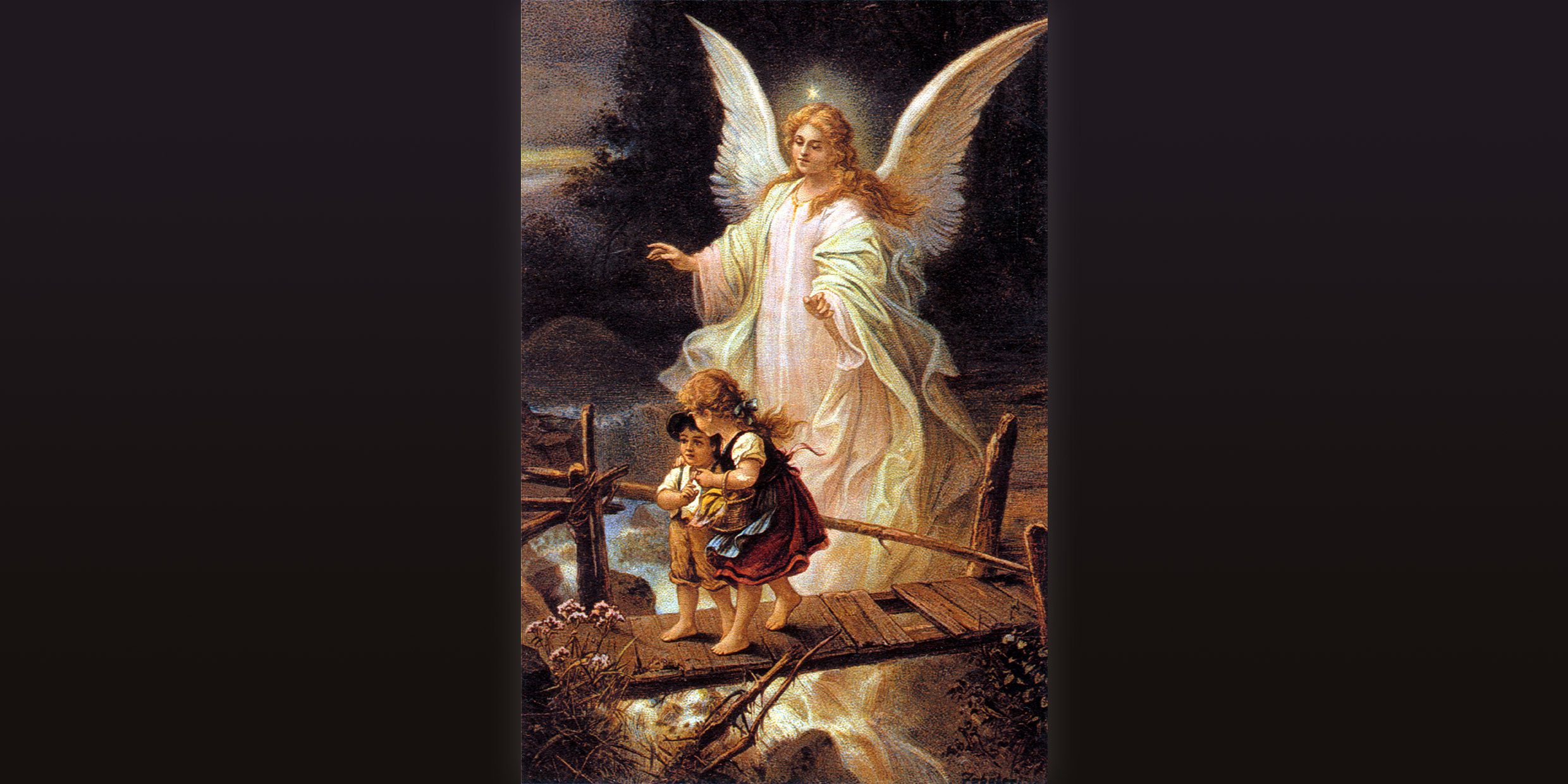Originally published 7 January 1991
One of my earliest memories is of an angel.
A picture of an angel hung on the wall above my bed, a beautiful winged creature guiding a boy and girl across a rickety footbridge. It was, of course, a Guardian Angel, and, according to my parents, each of us had one. Before I went to sleep at night I always said the traditional prayer that begins “Angel of God, my guardian dear…”
It is a consoling idea, that one of the heavenly choir is assigned to each of us, to guide us safely across rickety bridges and watch over us as we sleep. My own Guardian Angel hovered watchfully at my side until about the time I was able to go off to school by myself, slipped from consciousness at adolescence, and vanished completely as I began the study of science.
Somehow, angels and science didn’t mix.
But angels have been on my mind lately, at least partly because of the season. As I write, an angel with golden wings watches from the top of a rapidly shedding Christmas tree. Among my presents was a marvelous children’s book called On Christmas Eve, by Peter Collington, a wordless story of tiny angels guiding Santa to a house with no chimney. And…
Increasing popularity
Well, let’s face it, angels are making a comeback. And I’m not just talking about Hollywood, although Hollywood has given us a lot of angels lately. I’m talking about something more culturally pervasive, less whimsical, and possibly more significant. The ’90s promise to be a decade of angels.
A friend who works in a bookstore tells me that angel books are selling briskly. Angel-ology has moved from theological texts to the supermarket newspapers. Suddenly, angels are everywhere.
They are symptomatic of our culture’s split personality.
On the one hand, we are a scientific culture. Our technology, our economic well-being, our long lives and generally good health are based on science, and on a scientific attitude that values skepticism, the evidence of the senses, and the rejection of mysticism. One could even argue that our political freedoms, so profoundly framed by Jefferson, are grounded in a scientific view of the world.
Another part of our culture is skeptical about science, distrustful of reductionism, nostalgic for a world animated by spirits, and possessive of the notion that each of us has a direct line to whatever forces rule the universe.
We accept science for the material benefits it contrives on our behalf, but we distrust the materialist philosophy of scientists, preferring to give our attention to anyone claiming commerce with angels.
We willingly turn to science to remedy our ills, but are quick to blame science for our misfortunes. We put confidence in the scientific method, but reject the naturalistic philosophy that explains why the method works. In our schools we teach kids the public knowledge of astronomy, biology, chemistry, and physics, and in our homes we follow private visions of astrology, creationism, health fads, and parapsychology.
In a word, we are schizoid. No wonder we stumble so uncertainly toward the end of the century, lacking any reliable philosophical compass.
Healing the rift
What can be done to heal the split at the heart of our culture? For one thing, scientists could stop harping on the prevalence of superstition and pseudoscience and emphasize instead the rich transcendence of the world revealed by science.
If a medieval philosopher were confronted, on the one hand, with the idea of angels, and, on the other, with the idea of the air resonant with a hundred species of unheard music (Bach, Beethoven, and Mozart, to say nothing of Frank Sinatra and the Grateful Dead) — all made audible by a small box called a radio — he would surely call the latter more miraculous. And he would undoubtedly consider out knowledge of galaxies and DNA, for example, more intriguing than any debate about how many angels can dance on the head of a pin.
There’s no point in decrying our culture’s preoccupation with the mystical and paranormal, at least not until scientists are better able to show that a scientific world-view can satisfy the human need for meaning. Scientists may feel plugged into something larger and more wonderful than themselves, but so far they have failed to convince the public that science is anything more than a practical tool for wringing benefits from nature. Until they do, the public can be forgiven for looking elsewhere for a sense of purpose.
The split at the heart of our culture will grow wider as we approach the end of the millennium, a time that will inevitably evoke all sorts of apocalyptic enthusiasms. The angels now invading our bookstores and cinemas probably announce a decade-long binge of other-worldliness. Science will be respectfully tolerated; spiritualism and pseudoscience will be passionately embraced. And those of us who have chosen to negotiate the rickety footbridge of life without an angel at our side may find ourselves increasingly alone.



